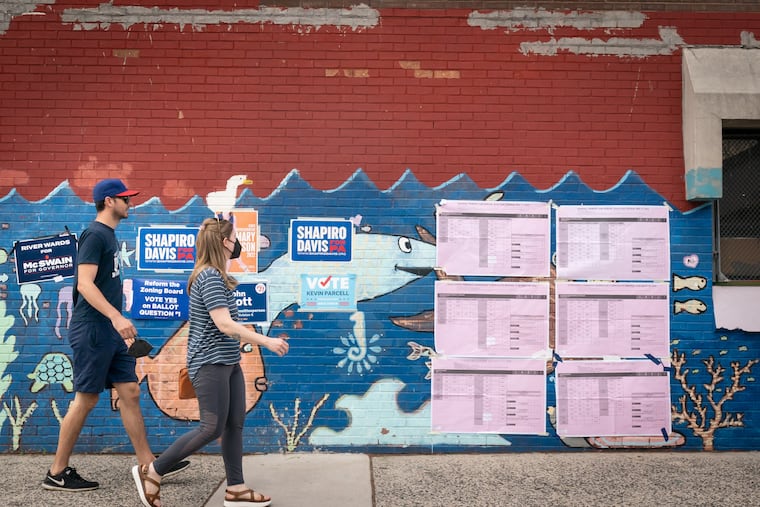Illegal electioneering is a throwback to Philly’s bad old days | Editorial
This practice would be a lot less common with one simple reform — those running for office cannot be allowed to also work the polls.

Philadelphia is rightfully proud of its legacy as the birthplace of American democracy.
Voting here has changed a lot over the years. Early American elections had a festival atmosphere, with parties, parades, and sometimes even dueling mob violence. While last Tuesday’s elections saw several Philadelphia incumbents fend off challenges from both the right and the left, they were considerably more subdued.
One unwelcome election day tradition, however, has proven particularly difficult to eradicate: unlawful electioneering, which occurs when a candidate — or someone acting on their behalf — interferes with voters when they are in the act of casting their ballots.
One way to end it is by requiring election board workers to choose to either work the polls or run for office.
» READ MORE: Philadelphia screwed up property tax assessments. Start over. | Editorial
Candidates and their campaigns are free to exercise their First Amendment rights outside the polling place, where you might find a crowd of volunteers. However, this activity is supposed to cease once you come within 10 feet of the room where voting is taking place. (A relatively short distance compared with other states, including New Jersey, which requires 100 feet.)
However, this doesn’t always happen.
Most electioneering complaints involve candidates for judge of elections or for party committeeperson spots. The committeeperson spots, in particular, are often seen as the first step in a political career and can be part of a natural progression after working the polls. But when a committeeperson candidate is also a poll worker, a conflict of interest can arise. This arrangement puts candidates who want to campaign inside the polling place. As poll workers, they should be enforcing the rules of the election, but they also want to win.
Philadelphia has taken steps to squelch electioneering. In 2014, then-District Attorney Seth Williams launched a task force to handle complaints. Amid last week’s election, the task force received 18 actionable complaints of electioneering. Because of a high burden of proof, most of those cases are unlikely to be prosecuted, let alone result in convictions.
But the state could do more to tamp down on electioneering with one simple reform: candidates for office cannot be allowed to also work the polls. Currently, the state constitution does not allow paid government workers to serve as poll workers. One way to clean up Philly’s electioneering problem would be to extend the ban on polling place work to office seekers.
» READ MORE: Intimidating, unfair legal system makes it hard for people to get the help they need
Of course, there are legitimate concerns about changing the current system. Recruiting election board workers is already difficult, and excluding more people from serving might complicate those efforts.
But the right way to ensure adequate coverage at election boards isn’t by allowing a conflict of interest to continue. It’s essential that the city instead drum up interest in this necessary work by boosting pay for poll workers and stepping up recruitment efforts.
Despite unfounded claims of widespread fraud by supporters of former President Donald Trump and other far-right extremists, the integrity of the city’s election operations withstood withering scrutiny during the 2020 presidential race. Another way to bolster the public’s faith in the system is to end the problem of electioneering by stopping candidates for office from hanging out all day inside our polling places.